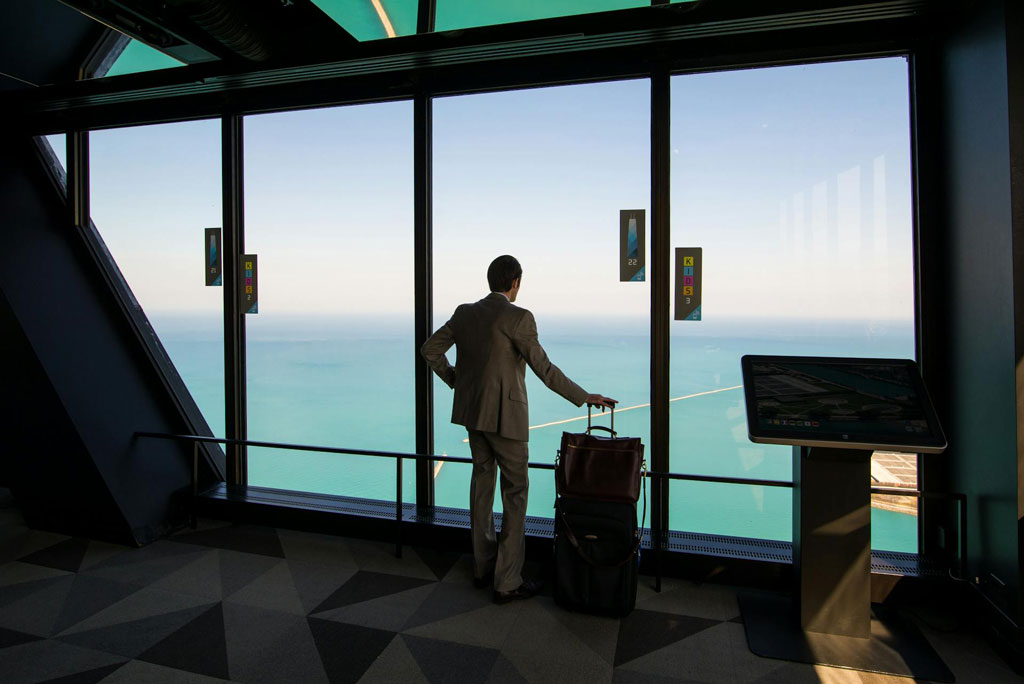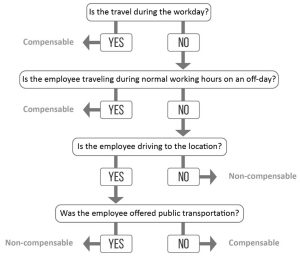
The Fair Labor Standards Act (FLSA) regulates what constitutes compensable time or hours worked. Under the FLSA, compensable time includes all work an employer “suffers or permits” its employees to work. This may occasionally include an employee’s travel time.
In addition, a workday begins when an employee starts their principal activity and ends when he or she finishes his or her last principal activity of the day. Therefore, the amount of compensable time during a workday may be longer than the employee’s scheduled shift, hours, tour of duty, or production line time.
The FLSA also dictates that employers must pay their employees for all hours worked. An employee’s pay must be at least the current federal minimum wage rate for the first 40 hours of work during a workweek and one and one-half times their regular rate of pay for any hours they work over 40 during a workweek.
This overview provides general information relating to compensable travel time under the FLSA.
Travel Time
Whether time spent traveling is compensable depends on the specific type of travel involved.
Traveling from home to work
An employee who travels from home before the regular workday and returns home at the end of that same workday is engaged in ordinary home-to-work travel. This travel time is not compensable work time.
Traveling from home to a customer’s workplace in emergency situations
Traveling from home to a customer’s workplace is compensable if the employee:
- Has gone home after completing a day’s work; and
- Is subsequently required to travel a “substantial distance” to perform an emergency job at a customer’s workplace.
This time may also result in paid overtime work. The U.S. Department of Labor (DOL) does not define “substantial distance.”
Travel from an employee’s home to a customer’s workplace is compensable; however, there is no guidance on whether the time an employee spends traveling from home to the employer’s workplace and back related to an emergency call outside of an employee’s regular hours is compensable work time.
Travel that is all in a day’s work
An employee must be compensated for the time they spend traveling as part of their principal activity. Time spent traveling for a principal activity may include travel from job site to job site during the workday. In addition, if an employee is required to report somewhere to pick up materials or perform other work, the travel from that place to the workplace is compensable work time.
However, whether time traveling away from the worksite beyond the normal workday is compensable depends on:
- The amount of travel time that is spent traveling away from the worksite; and
- Whether the employee is required to report back to work or goes directly home from the other location.
If required to return to work, the entire travel period is compensable work time. However, if the employee goes directly home, the time spent traveling home is non-compensable.
Overnight travel away from home community
Travel that requires an employee to be away from home overnight is compensable work time when it cuts across the employee’s workday. Under these circumstances, compensable time includes not only regular workday hours but also the corresponding hours on nonworking days.
Compensable travel time for an employee who regularly works from 8 a.m. to 4 p.m., Monday through Friday, would include travel time during those same hours on Saturday and Sunday as well as Monday through Friday. Regular meal period time is not counted.
Time spent in travel away from home outside of regular working hours as a passenger on an airplane, train, boat, bus, or automobile is not considered compensable work time. However, all time spent driving an automobile is compensable, except as described below.
Traveling away from home community in a private automobile
Compensable travel time includes the time an employee drives his or her own vehicle if the employer:
- Offered to cover the costs of the employee’s public transportation; and
- Authorized the employee to drive his or her own vehicle.
In these situations, compensable time includes the time that would have been counted as work time during working hours if the employee had used public transportation.
Traveling from home to a special one-day assignment in another city: When an employee who regularly works at a fixed location is given a special one-day assignment in another city, the time spent traveling to and returning from the other city is compensable work time. However, the employee’s regular home-to-work travel time or travel time for home-to-public transportation may be deducted.
Overnight Travel Time Flow Chart
©2024 Zywave, Inc. All rights reserved.
Accurately Track and Manage Travel Time for Your Employees
Inaccurate time entries, whether intentional or not, can tie up time and resources – ultimately affecting your bottom line. With isolved, GTM’s payroll and HR platform, ensure accurate payroll and compliance while efficiently managing time, labor, and attendance across your entire workforce – even employees who are remote or on the go. With flexible time tracking, you can handle multiple work environments – including physical and virtual time clocks – and track employee time entries across home offices, worksites, hybrid scenarios, and more. Request a free quote to learn more.


